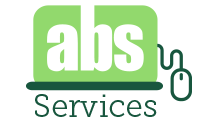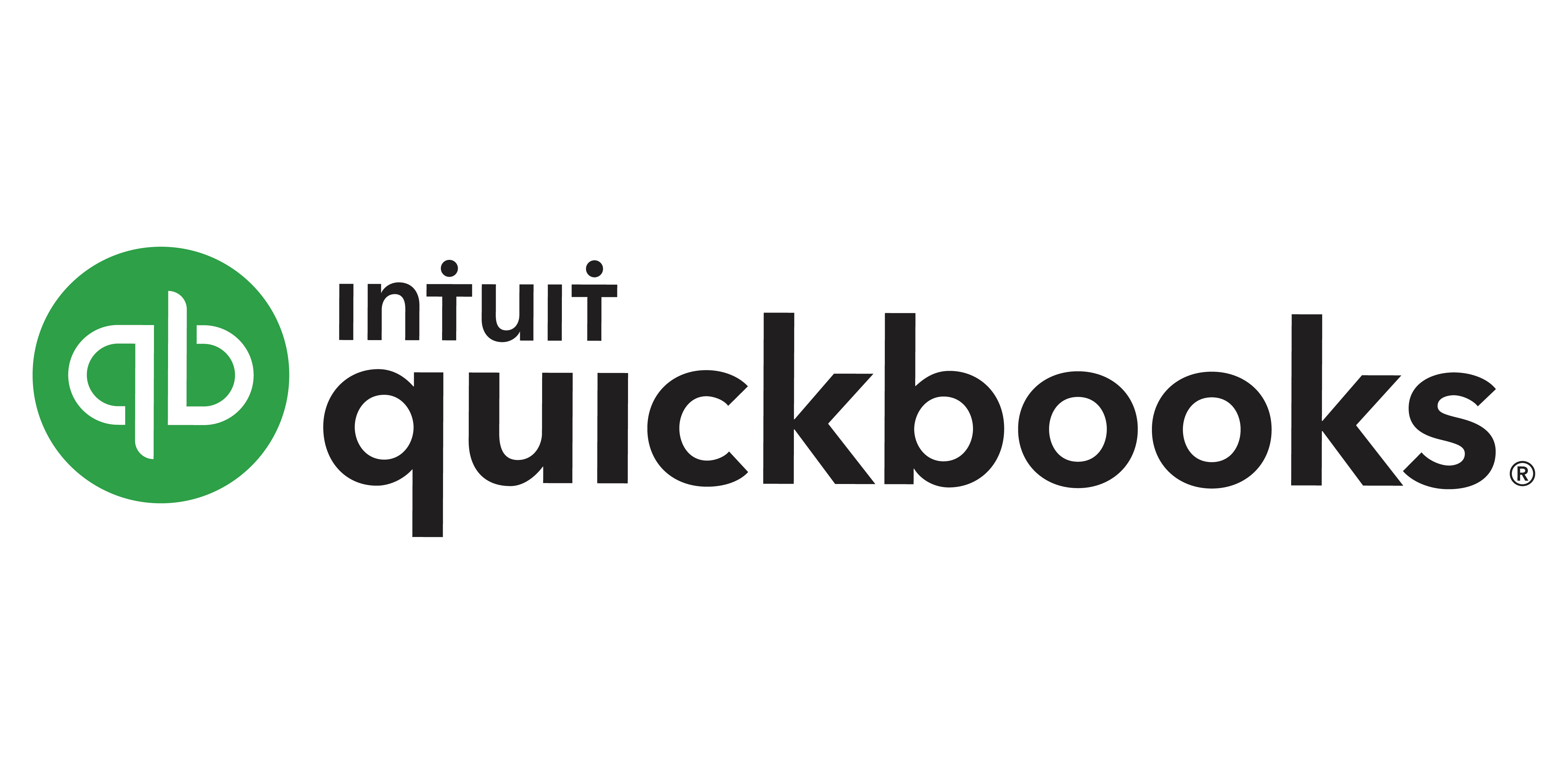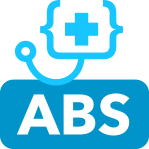Yes, most appointment management systems are designed to be accessible via numerous devices and platforms, such as smartphones, tablets, and PCs. This enables users to manage appointments and calendars on the road, without being limited to a single device or operating system. The rising usage of cloud technology has made it easier to access and synchronize appointment data across several devices and platforms.
List of 20 Best Appointment Management System
Omnify is solution for optimizing service sales, scheduling, and client interaction. Our powerful platform offers a comprehensive Service Store feature that drives impressive growth by boosting conversion rates. Upgrade from traditional booking pages...Read More Omnify
Call-Em-All - the perfect solution for easily sending personalized and timely text messages and calls to a large number of recipients. Our platform is user-friendly and offers flexible pricing options with no hidden fees. With exceptional customer su...Read More Call-Em-All
Agriyas ABS is the go-to appointment booking software for your business. Simplify your booking process with customizable options that cater to your specific needs. Save time, stay organized, and focus on growing your business while our software takes...Read More Appointment Booking Software
HealthQuest, a application designed to streamline patient management and enhance data accuracy for optimal healthcare results. With a user-friendly interface, advanced data analysis tools, and secure data storage, healthcare professionals can easily...Read More HealthQuest
TimeTrade is a premier Appointment Management Software designed to elevate customer loyalty, satisfaction, and retention. Experience personalized solutions to nurture strong relationships and drive sales growth. Provide unparalleled service to your c...Read More TimeTrade
Saral AmpliSoft solution for streamlining and digitizing your practice. Say goodbye to tedious paper records and hello to a paperless environment effortlessly. With a comprehensive record of every step, Saral AmpliSoft simplifies practice management...Read More Saral AmpliSoft
hCue Clinic Management is a trusted and user-friendly cloud-based software specifically designed for doctors in India. Our advanced platform enables seamless appointment scheduling, increased visibility, and effective communication with pharmacies an...Read More hCue's Clinic Management
DRS Dynamic Resource Scheduler is a solution that streamlines the scheduling and deployment of field teams. By efficiently managing travel time and task assignments, DRS helps clients meet their commitments and maximize productivity. With a seamless...Read More DRS Dynamic Resource Scheduler
SimplyBook.me is a business management software ideal for small and medium-sized service businesses. It features a fully customizable booking website that enables you to seamlessly accept online bookings, sell products, process payments, and collect...Read More SimplyBook.me
Workozy is a software solution that caters to the needs of field force teams. Its customizable features make it the ideal choice for enterprises looking to optimize their workflow management. With Workozy, equip your team with the tools they need to...Read More Workozy
Hakema Booker is a solution for appointment booking and marketing for salons, spas, and service-based businesses. This powerful software comes equipped with automated features to streamline your marketing efforts, manage customer databases, gather re...Read More Hakema Booker
QuickBooks Online, the premier accounting software for entrepreneurs and business owners. Streamline your financial management with its intuitive interface, top-notch security measures, and cutting-edge features such as Online bank connectivity and W...Read More QuickBooks Online
ABS solution for efficient and hassle-free medical appointment bookings. This revolutionary software, inspired by ZocDoc, is designed to simplify the process of patients scheduling appointments online. With ABS, healthcare providers can effortlessly...Read More ZocDoc Appointment
Appointy is a and intuitive Appointment Management Software designed to enhance and simplify business operations. With its array of advanced functionalities, Appointy enables businesses to easily schedule appointments, accept bookings, automate commu...Read More Appointy
AgileCRM is a CRM solution, provides a range of features including contact management, marketing automation, web analytics, telephony, newsletter management, real-time activity alerts, and seamless third-party integrations. Its advanced tools and fun...Read More AgileCRM
Health Gennie, a hospital management software designed to optimize your operations. Our solution includes OPD and IPD management, as well as integrated pharmacy, lab, and radiology management for seamless coordination. With customizable features, Hea...Read More Health Gennie
Wootzoo solution for teachers, coaches, and activity organizers. Our all-in-one platform simplifies class management, enhances communication with users, and boosts business growth. Bid farewell to the headache of juggling multiple systems and say hel...Read More Wootzoo
BookedIN is a online booking software that simplifies managing reservations and gathering personalized data from clients. It effortlessly integrates with all websites, including WIX and Wordpress, allowing for a seamless booking experience. With Book...Read More BookedIN
Medico SFA is a sales force automation solution for the Indian pharmaceutical market. Developed with the goal of optimizing business operations and enhancing productivity, this cutting-edge software is tailored for effective MR reporting and a compet...Read More Medico SFA (MR Reporting)
Smart Office Visitor Management System solution for optimizing efficiency, boosting productivity, ensuring security, and enhancing customer satisfaction. This all-inclusive software simplifies the entire visitor management process, providing a smooth...Read More Smart Office Visitor Management System
Learn More About Appointment Management System
- What Is Appointment Management System?
- What Are the Recent Trends in Appointment Management System?
- Benefits of Using Appointment Management System
- Important Factors to Consider While Purchasing Appointment Management System?
- What Are the Key Features to Look for in Appointment Management System?
- Why Do Businesses Need Appointment Management System?
- How Much Time Is Required to Implement Appointment Management System?
- What Is the Level of Customization Available in Appointment Management System?
- Which Industries Can Benefit the Most from Appointment Management System?
- Conclusion
What Is Appointment Management System?
Appointment Management System is a digital application that helps organizations of all sizes schedule, manage, and monitor appointments more efficiently. This system serves as a consolidated platform for organizations to easily manage appointments, regardless of industry. One of the primary functions of an Appointment Management System is to automate the whole appointment procedure.
This involves arranging appointments, issuing reminders, and handling cancellation or rescheduling requests. This solution allows firms to save time and remove the chance of manual mistakes, resulting in increased efficiency and output. Furthermore, an Appointment Management System provides several customization possibilities, allowing organizations to adjust the system to their individual requirements.
This covers creating various sorts of appointments, appointment lengths, and scheduling criteria. This adaptability makes the system appropriate for a wide range of businesses, including healthcare, beauty, education, and consulting services. Aside from streamlining the scheduling procedure, an Appointment Management System includes tools for monitoring and tracking appointments.
This includes thorough analytics and reporting, which provide organizations with important insights into appointment trends, peak hours, and consumer behavior. Additionally, this system provides fast access to client information, making it simple to browse and edit customer profiles. In today's fast-paced business environment, an Appointment Management System is essential for firms that want to deliver a seamless and simple client experience.
This technology, which automates the appointment process, reduces manual mistakes, and provides sophisticated tracking and reporting tools, may dramatically enhance a company's operations and customer happiness. When choosing an Appointment Management System for your organization, check for features like automation, customisation, and tracking capabilities.
Consider how well the system works with your present software and how easy it is to use. You can successfully manage appointments and improve customer service by selecting the correct solution for your organization.
What Are the Recent Trends in Appointment Management System?
Appointment management systems have recently seen a surge in popularity, as more firms see the value of efficient and structured scheduling. As a result, certain major trends have emerged in the appointment management system area.
1. Mobile Applications: One of the most significant recent changes in appointment management systems is the adoption of mobile applications. With the majority of customers utilizing smartphones for day-to-day activity, businesses are also providing mobile appointment scheduling applications. This enables users to book appointments, receive reminders, and even make modifications on the fly, making the process more comfortable and efficient for both the company and the consumer.
2. Integration with third-party software: Another trend is to integrate appointment management systems with other technologies and platforms. This enables firms to consolidate scheduling and eliminate manual labor. For example, a clinic can link its appointment management system with its electronic health record (EHR) system, allowing clinicians to access patient information more easily and optimize their workflow. Integration also enables organizations to send automatic alerts to clients, providing further convenience.
3. Online Reservations and Self-Service Options: In today's fast-paced world, people demand online booking and self-service choices. As a result, appointment management systems increasingly include features like self-service kiosks and online booking portals. Customers may arrange appointments whenever they want, and businesses can decrease their effort by automating the booking process.
4. Artificial intelligence: The application of artificial intelligence (AI) in appointment management systems is also gaining popularity. AI-powered systems can evaluate data and give useful insights into peak booking times, client preferences, and scheduling problems. This enables firms to manage their timetables and increase overall productivity. AI can also help with automatic appointment reminders and rescheduling, which reduces workload while increasing client experience.
5. Cloud-based Solutions: Cloud-based appointment management solutions are gaining popularity because to their simplicity of use, accessibility, and cost-effectiveness. By keeping data and information on the cloud, companies may access their schedules from anywhere and at any time, eliminating the need for physical servers and lowering maintenance expenses. This also enables for smooth communication and collaboration among team members, as well as flexibility in scheduling appointments across several locations.
Benefits of Using Appointment Management System
Appointment management systems are software tools that assist businesses and organizations in efficiently managing their appointments and schedules. It simplifies the whole process, from appointment scheduling to reminders and follow-ups, making it a must-have tool for any organization that relies on appointments to function.
Here are some of the main advantages of adopting an appointment management system.
1. Increased Efficiency: The major advantage of an appointment management system is its capacity to boost productivity. It removes the need for manual appointment scheduling, which is time-consuming and error-prone. Businesses may save time and dollars by using automatic scheduling and reminders.
2. Improved client Experience: A well-managed and planned appointment system may greatly enhance the entire client experience. Customers may use the technology to make appointments online whenever they want. They can also receive automatic reminders, which reduce the probability of missed appointments and increase client satisfaction.
3. Fewer No-Shows: Missed appointments may be a major issue for businesses, resulting in lost income and wasted resources. Appointment management systems can minimize the frequency of no-shows by delivering automatic reminders to consumers prior to their planned appointments. This functionality can save organizations both time and money in the long term.
4. Real-Time Scheduling: An appointment management system allows organizations to view and manage their appointments in real time. This means they can rapidly identify any modifications or additional appointments and adjust accordingly. It improves productivity and enables organizations to react rapidly to changing conditions.
5. Customisation And Personalization: Many appointment management systems provide customisation and personalization options, allowing organizations to adjust the system to their unique requirements. This can involve scheduling several sorts of appointments, providing personalized reminders, and tailoring the booking process to different services or locations.
6. Data Tracking and Analysis: An appointment management system may help firms get useful insights and data about their appointment history. Businesses may use this information to discover trends, measure progress, and make data-driven choices to enhance their operations.
7. Interaction with Other Software: Appointment management solutions frequently provide interaction with other software and tools, such as customer relationship management (CRM) or electronic medical records (EMR) software. This connection enables a more efficient flow of information and a more comprehensive approach to managing appointments and customer interactions.
Important Factors to Consider While Purchasing Appointment Management System?
As organizations rely more on technology, appointment management systems have become an essential tool for simplifying and arranging appointments. However, with so many alternatives on the market, it can be difficult for consumers to select the best system for their unique requirements.
Here are some crucial aspects to consider when selecting an appointment scheduling system:
1. Features and Functionality: The first step in selecting an appointment management system is to establish which features and functionality are critical to your organization. Simple things to check for include appointment scheduling, automated reminders, and online booking. Additional functionality like client database administration, payment processing, and reporting tools may be useful.
2. Scalability: When choosing an appointment management system, you should evaluate your company's future expansion potential. Will the system be capable of handling an increase in appointments and users? Look for a system that is expandable and adaptable to your company's changing requirements.
3. Integration with Other Systems: In today's digital world, firms must have systems that connect with one another effortlessly. When selecting an appointment management system, ensure that it is compatible with your current systems, such as a POS system, CRM, or email marketing platform.
4. User-Friendliness: A user-friendly system is critical for both you and your customers. The system should be simple and straightforward to use. It should also include a mobile interface for easy access while on the road.
5. Security: Because appointment management systems handle critical consumer and corporate data, security should be a major concern. Look for solutions that include data encryption, secure servers, and regular backups to safeguard the security of your data.
6. Customer Support: It is critical to have access to dependable customer service in case you face any problems with the system. Look for systems with various support channels, such as phone, email, and live chat, as well as a reputation for providing timely and helpful assistance.
7. Pricing: The appointment management system, like any other company expense, must be considered in terms of cost. While it may be tempting to choose the lowest option available, it is critical to assess the cost against the features, functionality, and support provided by the system. When choosing an appointment management system for your business, keep these crucial things in mind to make an educated selection. Consider your individual demands, budget, and long-term goals when selecting a system to help your organization succeed.
What Are the Key Features to Look for in Appointment Management System?
When looking for the ideal Appointment Management System for your company, it is critical to examine the following crucial qualities.
1. Scheduling Capabilities: An Appointment Management System's primary objective is to schedule appointments. Look for a system that allows you to quickly establish, change, and cancel appointments, as well as examine your schedule at a glance.
2. Connection Options: An effective system should allow for connection with other calendars, databases, and appointment reminders by email or text message. This streamlines your process and ensures that all appointments are appropriately recorded.
3. Modification: Every organization has different scheduling requirements, and a decent Appointment Management System should allow for modification. This might involve specifying availability hours, allocating different sorts of appointments, and assigning certain personnel to each appointment.
4. Automated Confirmation and Reminders: After scheduling an appointment, a quality system should send clients automated confirmation emails or texts. It should also send automatic reminders to both clients and employees before to the meeting to reduce no-shows.
5. Payment Processing: For businesses that demand upfront payments or deposits for appointments, it's critical to select a system that supports safe payment processing. This saves time and ensures a seamless payment procedure for both you and your clients. 6. Client Database Management: Keeping track of your clients' information is essential for effective appointment scheduling. Look for a system that allows you to simply store and retrieve customer information, such as contact information, appointment history, and notes.
7. Reporting and Analytics: A good Appointment Management System should have reporting and analytics tools to assist you track your company's success. This can contain statistics on appointment numbers, revenue, and customer demographics, allowing for more educated decisions.
8. Mobile Compatibility: With the advent of remote work and mobile devices, it's critical to select a system that is mobile compatible. This allows you to organize appointments, check timetables, and access client information on the move.
9. User-Friendly Interface: A user-friendly interface is required for the system to be adopted and used effectively. Look for a clear and straightforward design that makes it easy to browse and do important activities without misunderstanding.
10. Customer Assistance: Finally, while purchasing an Appointment Management System, it is critical to examine the degree of customer assistance available. Look for a system that provides dependable and timely help in the event of any technological difficulties or inquiries.
Why Do Businesses Need Appointment Management System?
Appointment management systems have become indispensable tools for organizations of all sizes and sectors. These solutions not only simplify the scheduling procedure, but they also provide other advantages that contribute to higher efficiency, income, and client pleasure. One of the key reasons for organizations to use an appointment management system is to minimize the laborious and time-consuming chore of manually booking appointments.
Businesses may use an automated system to simply manage appointments, establish availability, and send reminders to both employees and consumers. This not only saves time, but also lowers the possibility of human mistake, ensuring that appointments are recorded correctly. Another important feature of an appointment management system is its capacity to improve staff scheduling.
This feature enables firms to allocate appointments to individual employees based on availability and competence. This guarantees that each employee is properly employed, resulting in increased production and resource management. Furthermore, an appointment management system allows organizations to personalize their scheduling choices to meet their specific demands.
It enables them to establish their own booking policies, such as a minimum notice period, a limit number of appointments per day, and a buffer time between appointments. This level of customisation enables firms to keep control over their schedule while avoiding overbooking, which can lead to disgruntled consumers. Furthermore, an appointment management system helps firms collect and handle consumer information more efficiently.
Businesses may use tools such as automatic reminders and follow-up emails to remain in touch with their consumers, create connections, and enhance client loyalty. Some systems also allow for the integration of consumer data with marketing tools, allowing firms to target their clients with individualized offers and promotions. Last but not least, an appointment management system may help organizations gain vital information about their performance and client behavior.
Businesses may use thorough statistics and analytics to determine peak booking hours, popular services, and client patterns. This information may assist firms in making data-driven decisions to optimize their offerings and increase overall performance.
How Much Time Is Required to Implement Appointment Management System?
The installation time for an Appointment Management System can vary based on a number of factors, including the size and complexity of the organization, the features and modifications required, and the expertise of the implementation team. On average, completely implementing an Appointment Management System might take between a few weeks and a few months.
The initial phases in the implementation process include analyzing the business's unique goals and requirements, adapting the system to meet those needs, and integrating it with current systems and procedures. This step might take many weeks and necessitates careful coordination between the implementation team and the company owners.
Once the system has been modified and made ready for usage, the following stage is to educate the users and configure it. This might take many weeks, depending on the system's complexity and number of users. During this stage, users will become acquainted with the system's functions, including appointment scheduling, client management, and report production.
Following the training, the system is often put through a testing process to detect any faults or defects that must be rectified before going live. This phase might last several weeks, depending on the size of the system and the degree of testing necessary. After all difficulties have been fixed, the system is ready to go live. The implementation procedure might last anywhere from 4 to 12 weeks, depending on the criteria indicated before.
It is critical to collaborate closely with the implementation team and maintain clear communication to guarantee a smooth and timely deployment. With careful design and effective execution, an Appointment Management System may be established in a reasonable amount of time, giving a seamless and structured solution for appointment management.
What Is the Level of Customization Available in Appointment Management System?
The amount of customization possible in an Appointment Management System may differ based on the program being utilized. However, such systems generally provide a great level of customisation to match the specific demands and preferences of enterprises. To begin, most Appointment Management Systems allow customers to modify their interface and dashboard to reflect their brand and visual style.
This gives the system a more professional appearance and makes it more tailored to the needs of the organization. Furthermore, companies may tailor the appointment booking experience by including their own logo, colors, and bespoke message for clients. This aids in the creation of a smooth and consistent brand image for the company. Additionally, Appointment Management Systems allow you to set many sorts of appointments, such as one-on-one sessions, group appointments, or recurrent appointments.
This enables firms to provide numerous sorts of services and manage them properly. Another facet of customisation in these systems is the option to create several user accounts with varying degrees of access. This functionality enables organizations to assign appointment scheduling chores to various team members while preserving control and transparency.
Furthermore, many Appointment Management Systems include interaction with other applications, including calendars, payment gateways, and customer relationship management (CRM) tools. This enables a more personalized and efficient appointment management approach. Finally, some advanced appointment management systems allow you to generate bespoke reports and analytics based on certain metrics and data. This can help firms make data-driven decisions while also improving overall scheduling and performance.
Which Industries Can Benefit the Most from Appointment Management System?
Appointment Management Systems (AMS) are adaptable solutions that may help a variety of sectors. These systems are intended to streamline and automate appointment scheduling, making it more efficient and easy for businesses and customers. This not only saves time and effort, but also contributes to higher customer satisfaction and income.
The following sectors can benefit the most from an appointment management system:
1. Healthcare: In the healthcare profession, time is of the importance, and manually arranging appointments may be challenging. AMS may help medical facilities save time and decrease the risk of human mistake by automating appointment scheduling, reminders, and confirmations. This results in better patient care and more overall efficiency in healthcare facilities.
2. Salons and Spas: The beauty and wellness business is primarily reliant on appointments. AMS helps salon and spa workers manage their hectic schedules by letting clients to book and reschedule appointments online. This decreases the likelihood of multiple bookings and missed appointments, resulting in better time management and higher client satisfaction.
3. Education: Educational institutions such as schools, colleges, and universities sometimes struggle to manage and track student and faculty assignments. They may use AMS to streamline the process and organize meeting, counseling, and other appointments more efficiently. This helps to improve communication and organization inside the institution.
4. Legal Services: An AMS may help law firms and legal practitioners streamline complicated appointment scheduling and reduce the possibility of scheduling conflicts. AMS may also help clients communicate better by allowing them to make appointments online and receive automatic reminders, making the process easier for both sides.
5. Government Agencies: An AMS may help government agencies and public services like DMVs, passport offices, and tax departments streamline appointment scheduling and manage large quantities of appointments more efficiently. This helps to reduce wait times and increase customer satisfaction.
6. Fitness and Wellness: The fitness and wellness business, like salons and spas, is primarily reliant on class and session appointments. AMS assists in managing many appointments and ensuring that classes are not overbooked, resulting in better time management and client retention.
Conclusion
In conclusion, choosing the right Appointment Management System is essential for maximizing efficiency and productivity in any business. After considering the key factors such as features, pricing, ease of use, and customer support, it is clear that [product name] stands out as the top choice for buyers. Its comprehensive features, competitive pricing, and excellent customer support make it a reliable option for managing appointments, schedules, and client communications.
With its user-friendly interface and customizable features, [product name] makes it easy for businesses to streamline their appointment booking process and improve overall customer satisfaction. Its robust reporting and analytics feature also make it a valuable tool for data analysis and decision-making. Furthermore, the cloud-based nature of [product name] makes it accessible anytime, anywhere, providing businesses with flexibility and convenience.
The added benefit of mobile compatibility ensures that appointments can be managed on the go, making it an ideal solution for businesses of all sizes. Overall, investing in [product name] would not only help in managing appointments seamlessly but also help in saving time, reducing no-shows, and increasing revenue.
Its user-friendly interface and comprehensive features make it a smart investment for any business looking for an efficient and reliable Appointment Management System. So, make the right choice and choose [product name] for all your appointment management needs.
Appointment Management System FAQ's
Can Appointment Management System Be Accessed Across Multiple Devices and Platforms?
Is Appointment Management System Future-Proof and Adaptable to Emerging Technologies Like Ai, Blockchain or Iot?
Yes, the Appointment Management System is intended to be future-proof and adaptable to new technologies such as AI, blockchain, and IoT. The system is regularly updated and integrated with the most recent technological breakthroughs to improve functionality and give users with a smooth experience. This guarantees that the system can readily integrate new technologies while remaining relevant in the ever-changing digital context.
Is There a Free Trial Offered to Assess Appointment Management System Before Committing?
Yes, many appointment management systems include a free trial period in which customers may evaluate the features and functions before committing to a subscription. This enables firms to evaluate the system's compatibility and efficiency in simplifying appointment processes. It also allows users to acquaint themselves with the system and its interface. Following the trial time, consumers can choose whether or not to subscribe to the service.
Does Appointment Management System Offer Data Security Features and Meet Regulatory Compliance Standards?
Yes, most appointment management systems include data security features such as encrypted data storage, password protection, and access control to safeguard the confidentiality and integrity of information. They also follow industry regulations, such as HIPAA and GDPR, to secure personal and sensitive data. These steps provide organizations with piece of mind by preserving their data and ensuring compliance with regulatory regulations.
Can Appointment Management System Integrate Seamlessly with Existing Tools and Platforms?
Yes, an Appointment Management System may be effortlessly integrated with your current tools and platforms, making it easier to organize appointments and improve your process. With configurable connectors, you may link your appointment system to common tools such as calendars, customer relationship management software, and online payment systems. This leads to a more efficient and simplified procedure, saving you time and resources.



















-logo.jpg)


